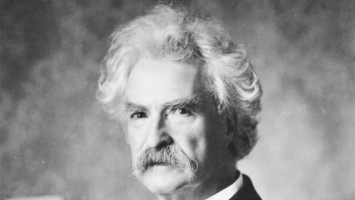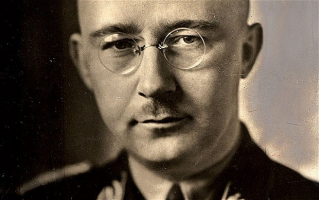Top 7 Interesting Facts about Mark Antony
Roman general and statesman Marcus Antonius, also known as Mark Antony in English. He played a crucial role in Rome's politics as it transitioned from a ... read more...Republic to an Empire. Here are interesting facts about Mark Antony.
-
Julius Caesar's relative and ally Antony fought with him as one of his generals in the conquest of Gaul and the Civil War. While Caesar removed political rivals in Greece, North Africa, and Spain, Antony was named Italy's governor. Following Caesar's murder in 44 BC, Antony teamed up with Marcus Aemilius Lepidus, another of Caesar's generals, and Octavian, his great-nephew and adoptive son, to construct the Second Triumvirate, a three-man dictatorship that became known to history as the Second Roman Empire. At the Battle of Philippi in 42 BC, the Triumvirs overcame the Liberatores, who had killed Caesar, and split the rule of the Republic among themselves. In the war against Parthia, Antony was handed authority over Rome's eastern provinces, which included the client state of Egypt, which was then controlled by Cleopatra VII Philopator.
The triumvirs' relationships became tense as each member aspired to have more political influence. When Antony wed Octavian's sister, Octavia, a civil war between Octavian and Antony was avoided in 40 BC. Despite being married, Antony continued to have a romantic relationship with Cleopatra, who gave birth to three of his children and further strained his relationship with Octavian. In 36 BC, Lepidus was removed from the group, and in 33 BC, disputes between Antony and Octavian led to a breakup of the surviving Triumvirs. As the Roman Senate, acting under the orders of Octavian, declared war on Cleopatra and accused Antony of betraying her, their long-standing animosity broke out into civil war in 31 BC. At the Battle of Actium later that year, Octavian's army triumphed over Antony. After fleeing to Egypt and losing the Battle of Alexandria once more, Antony and Cleopatra killed themselves.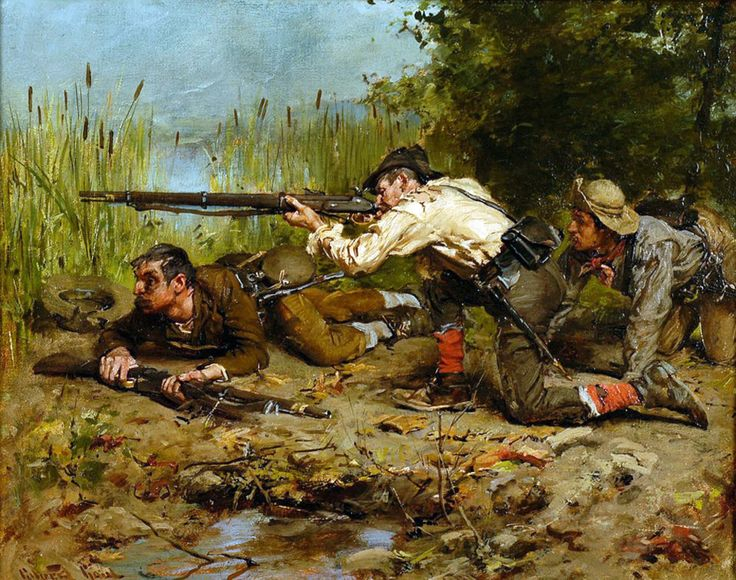
Photo: Pinterest - Civil War 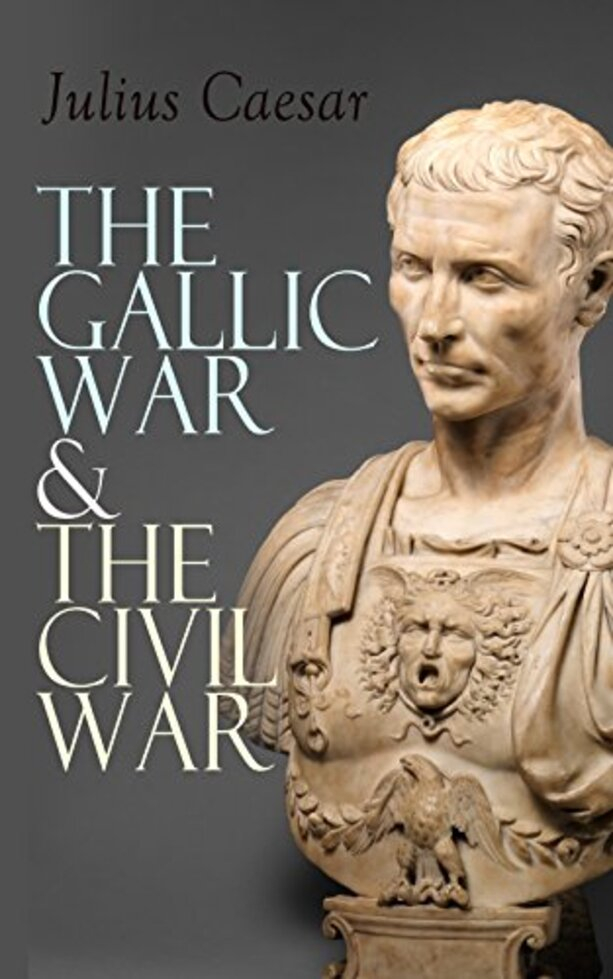
Photo: Amazon.com - The Gallic War & The Civil War -
On January 14, 83 BC, Antony was born in Rome as a member of the plebeian Antonia gens. Marcus Antonius Creticus was his father and the bearer of his name; he was the prodigious orator Marcus Antonius's son, who had been assassinated in the winter of 87–86 BC during the purges of Gaius Marius. Julia, Julius Caesar's third cousin, was his mother. At the time of Lucius Cornelius Sulla's invasion of Rome in 82 BC, Antony was a little child.
The historian Plutarch claims that Antony spent his adolescent years drinking, gambling, and becoming embroiled in scandalous relationships while he and his brothers and companions were lost in the streets of Rome. Cicero, Antony's contemporaries and adversaries, claimed that the latter had an affair with Gaius Scribonius Curio. This type of slander was widely used at the time to denigrate and discredit political rivals in the Roman Republic. While it is known that he was a friend of Publius Clodius Pulcher and his street gang, there is little trustworthy information about his political involvement as a young man. Given that he was later identified as a priest of this order, he may have also been associated with the Lupercal cult. By the time he was twenty, Antony had racked up a sizable debt. In an effort to get away from his creditors, Antony traveled to Greece in 58 BC, where he attended Athens to study philosophy and eloquence.
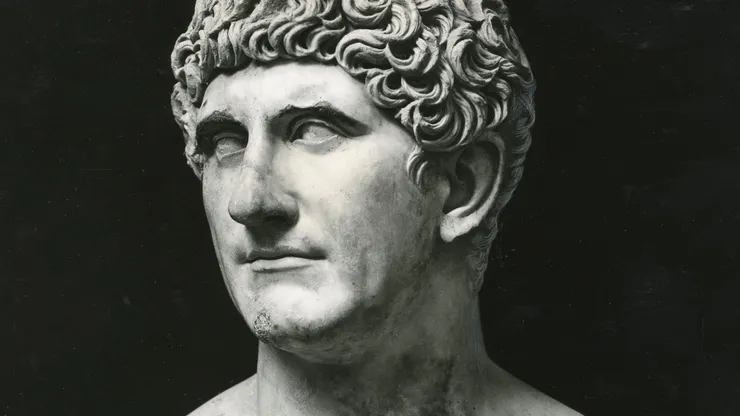
Photo: Encyclopedia Britannica - Mark Antony summary 
Photo: World History Encyclopedia -
You've probably seen references to Mark Antony as Caesar's right-hand man if you've read anything at all about him. While he enjoyed bragging about this alleged fact, the truth was quite different. One of the interesting facts about Mark Antony we gathered, he wasn’t really Julius Caesar’s right-hand man. Although he was also a good administrator and politician, Antony's greatest strength was in the military, where he excelled as a commander. Loyalty, however, was not one of his qualities.
While serving Caesar, Antony was an excellent military leader, but his master was never able to fully trust him because of his poor performance as an administrator. While Caesar was abroad in Egypt, Antony was appointed governor of Italy, but he made such a mess of the job that his master returned home to remove him from office.
The possibility that Titus Labienus served as Caesar's genuine right-hand man is growing. One of his top lieutenants in Gaul, Labienus, carried out his duties as the Tribune of the Plebs in a way that delighted his master. In the capacity of administrator, Antony was completely ineffective, whereas Labienus thrived and rose to prominence as a powerful political figure. In the end, Labienus turned on Caesar by fighting for Pompey in the Civil War. Caesar learnt his lesson and never again put such a great deal of faith in one of his troops. He made sure other people held key posts going forward, but none had the notoriety Labienus had.
The way Antony treated his commander changed, and Caesar swiftly started to have doubts about his aide. Perhaps for this reason, Antony never informed Caesar that he had been contacted by spies. He declined to participate in the assassination of Caesar, yet his inactivity condemned his master to death. Antony may not have taken action since he knew he would become the head of the Caesarian faction given that he would be the most senior lieutenant still alive in the case of Caesar's demise and that his leader's factions would undoubtedly react.
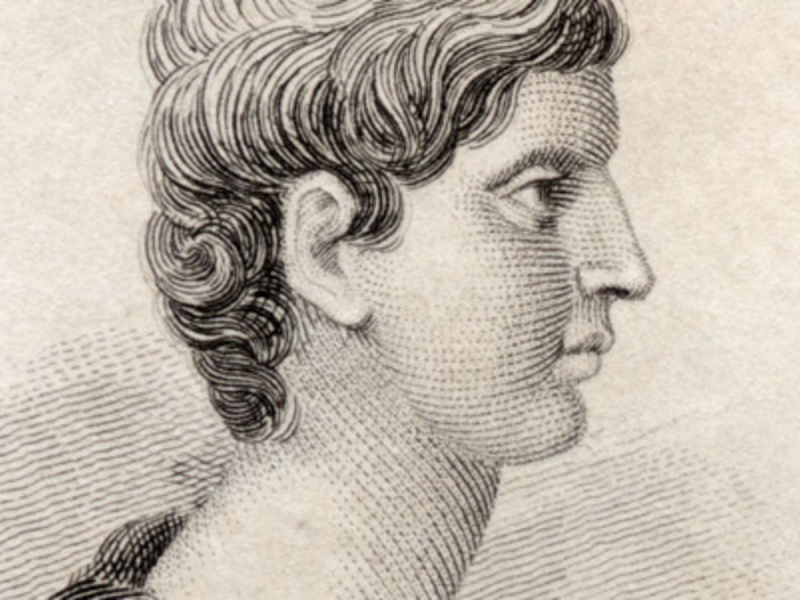
Photo: bio. Biography.com - Mark Antony 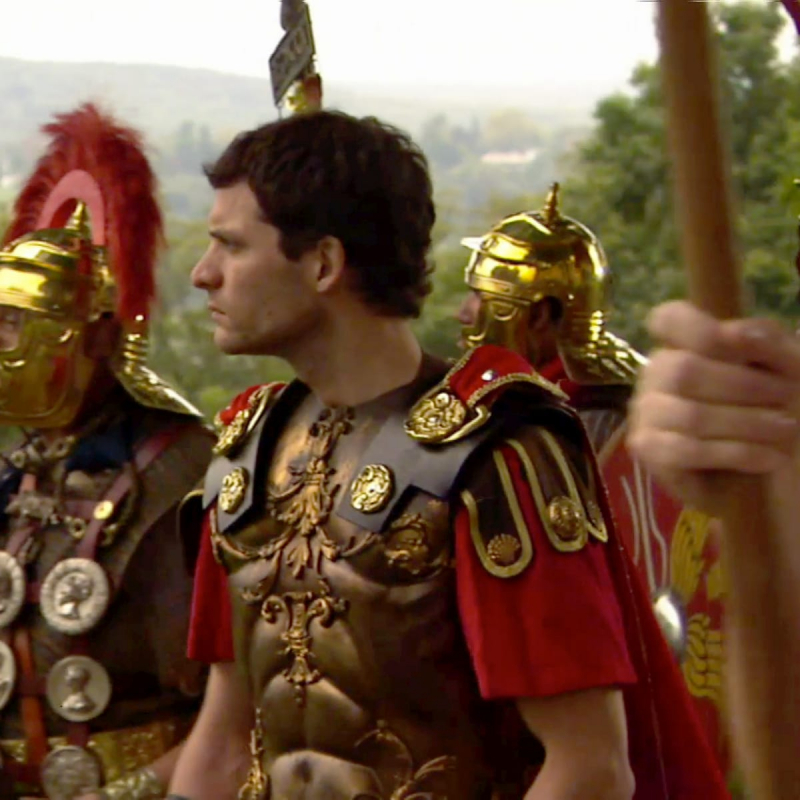
Photo: www.history.com - Julius Caesar -
The most well-known speeches in Roman literature are those by Cicero criticizing Antony. It is obvious that the great orator detested Antony, but this hatred was undoubtedly shared. After Antony's father passed away, his mother wed P.
Cornelius Lentulus, who served as a sort of parental figure, and the two got along well. For his involvement in the Cataline Affair, Lentulus was put to death by Cicero in 63 BC. Antony never forgot this, and Cicero finally paid with his life for this crime and his future opposition. Notably, Cicero claimed that Antony's father was dishonest and inept, and he also claimed that his adversary had a homosexual liaison.
After Caesar's death, there was a fight for control, and Cicero believed that Octavian had the potential to save the Republic. As the unofficial executor of his former leader's testament, Cicero charged Antony of violating Caesar's desires. Cicero condemned Antony in 14 speeches (known as the Phillippicae) delivered in 44 and 43 BC. On September 2, 44 BC, he gave the first of these remarks, criticizing the laws of Publius Cornelius Dolabella and his new foe.
Cicero and Antony were the two most important political personalities in Rome at this time, and the orator's reputation had never been better. On April 21, 43 BC, Cicero gave the 14th Philippic, in which he asked that Antony be designated as a "hostile" or adversary of the state. Unfortunately for Cicero, Antony reconciled with Octavian and established the Second Triumvirate with Lepidus and his new ally.
Cicero was one of the new Triumvirate's first targets when they began proscribing their adversaries. On December 7, 43 BC, Cicero was observed fleeing from his estate in Formiae with the intention of making his way to Macedonia. Despite the fact that he continued to enjoy popular goodwill to the point that individuals hesitated to divulge his location, Cicero's good fortune came to an end. According Roman mythology, Herennius, a soldier, murdered Cicero first, then hacked off his head later as Cicero bent over to assist the men in correctly chopping off his head. Cicero's hands were severed by Antony's troops, who then affixed them to the Rostra in the Forum Romanum alongside his head. Fulvia, Antony's wife at the time, was accused by Cassius Dio of removing Cicero's tongue and severing it with a hairpin.
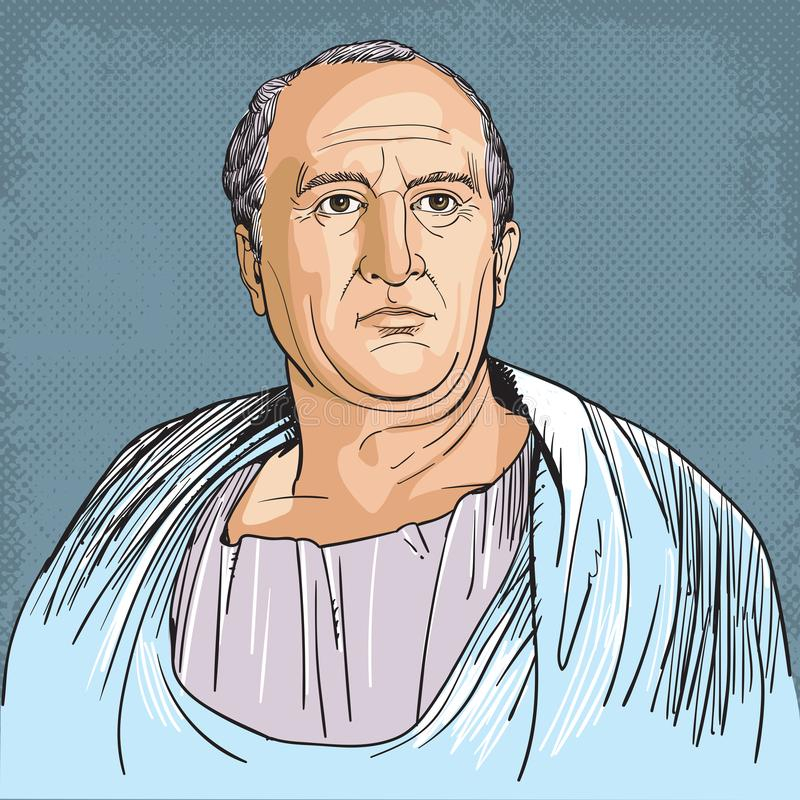
Photo: Dreamstime - Cicero 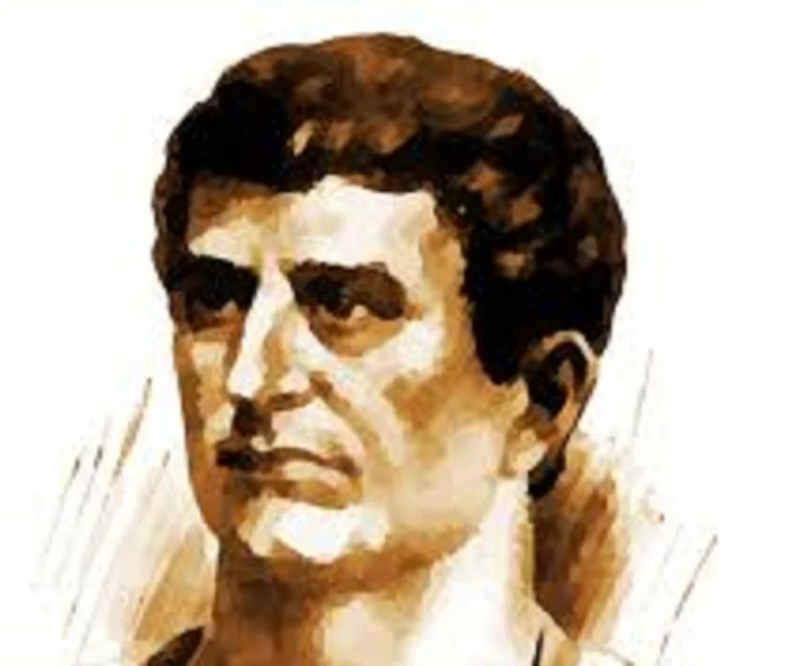
Photo: The Famous People - Mark Antony -
Having many wives was common in ancient Rome, but like he did with so many other aspects of his life, Mark Antony went beyond. The majority of sources claim he had four marriages, but there could have been a fifth. According to Cicero's account in the Philippics, Antony wed Fadia, a rich freedman's daughter. Since Antony was a member of the Plebeian nobility and would have been viewed as marrying beneath himself as such, there is some uncertainty about this relationship. If he did wed Fadia, it was to assist him pay off his large debt. Cicero claimed that Fadia and all of her children passed away by 44 BC.
His cousin Antonia served as his first legitimate wife. They got married in 55 BC as a result of this career-related decision. He accused her of having an extramarital affair with Dolabella, Cicero's son-in-law, leading to their divorce in 47 BC. They had one daughter together. Because Fulvia became his new wife less than a year after his divorce, Antony clearly liked marriage. She met Antony in Athens, but his ire at her behavior made her grieve, which was a key contributing factor in her passing.
Whether or not he would accept it, Antony's marriage to Octavia, Octavian's sister, as part of their reconciliation, was made possible by Fulvia's passing in 40 BC. They got married the same year Fulvia passed away, and shortly after, Octavia gave birth to their daughter. While her husband battled the Parthians, Octavia functioned as a mediator between her brother and her husband and stayed in Rome to take care of his children. Despite not reuniting, they remained married for a further five years until 32 BC, when Antony and Octavian went to war.
He confessed that Cleopatra was his last wife in 36 BC. Her nationality and the fact that Antony was still legally wed to Octavia prevented Rome from officially recognizing his marriage to the Egyptian queen. He most likely wed Cleopatra so he could share in her enormous fortune. Up until his suicide following loss at the Battle of Actium, they had three children together and were still married.
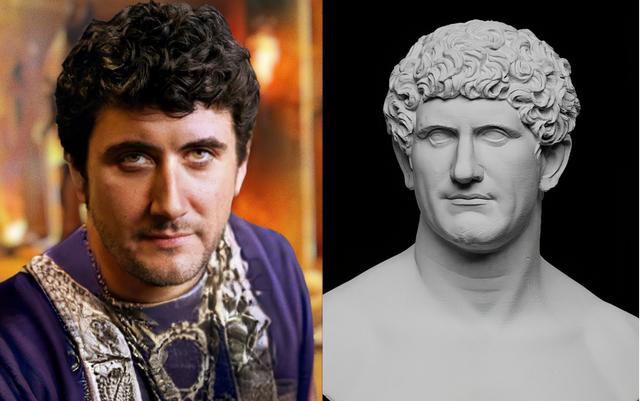
Photo: Reddit 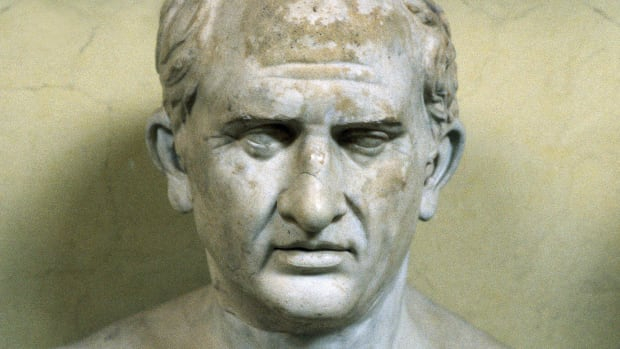
Photo: www.history.com -
Mark Antony's personal life is not well documented, however most accounts concur that he was a womanizer and wine enthusiast. He is portrayed as a sex addict with alcoholism tendencies who was prone to violent rages in the HBO series Rome. Plutarch claims that Antony had a borderline alcoholic desire for drink. The majority of the reports of the commander engaging in womanizing originate from Plutarch, who typically brings it up in the context of his drinking, even if other writings seem to show that he did indeed love his wine a bit too much.
The concept that Mark Antony went "all in" with Cleopatra may be the fundamental factor in why we link him with womanizing conduct. The fact is that he probably had the Egyptian queen as a friend mostly for financial advantage. By implying that he jeopardized his reputation and life to engage in sexual activity with a "foreigner," it is simple to present him in an unfavorable light. In truth, Cleopatra was among the richest individuals on earth, thus it made sense for him to spend time with her in order to gather the military resources he would need to confront Octavian.
Even Plutarch remarked on Mark Antony's striking good looks, saying that he had a "bold and manly aspect, which is found in the sculptures and pictures of Hercules." He was therefore frequently surrounded by attractive women, suggesting that he may not have initially been captivated by Cleopatra's purported beauty (His actions at Actium suggest he had long since fallen hopelessly in love with Cleopatra). By the way, we don't know what Antony looked like! Octavian made sure that no busts associated with the commander are entirely attributable to him, and he made sure that there are no clear pictures of his adversary. It should be emphasized that the fact that he had several spouses doesn't do anything to change our perception of him as a womanizer.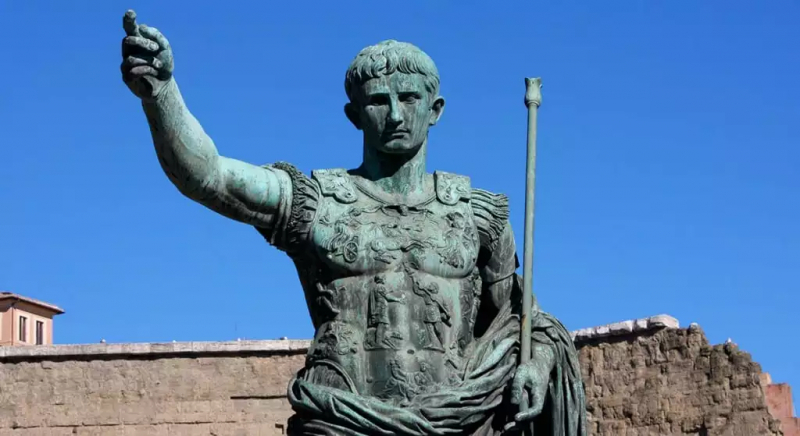
Photo: Curious Historian 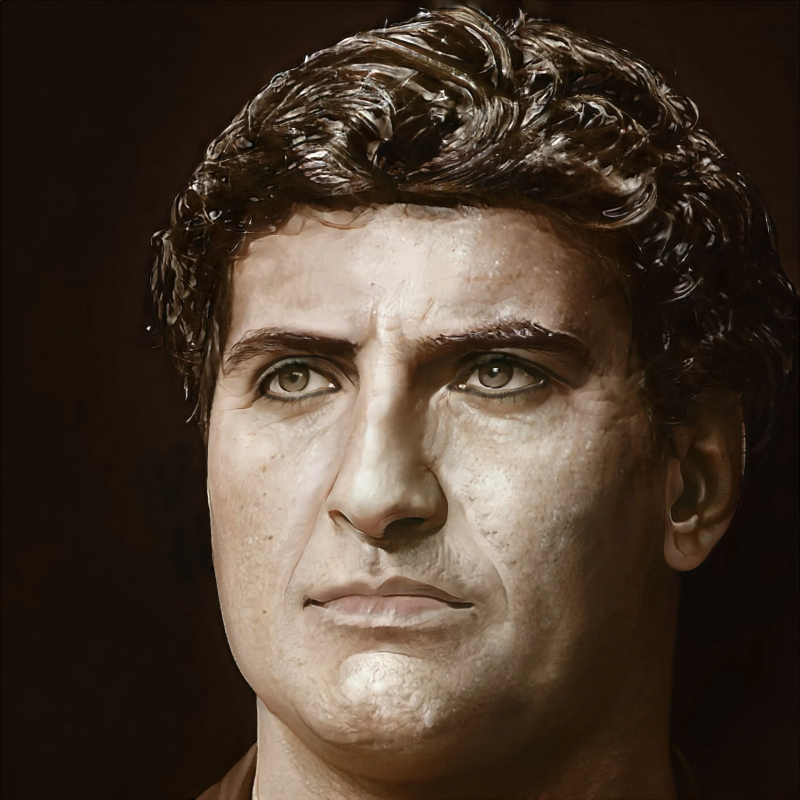
Photo: World History Encyclopedia -
The 7th fact on the list of "Interesting facts about Mark Antony", he was an outstanding military commander.
He may have served as a "commander for hire" with Clodius' support, but it shouldn't take away from his sterling reputation. Like other generals in history, he lacked the leadership and total genius of Caesar, but he was nonetheless a good general in his own way. When Antony was 22 years old, his military career began in Syria, and he was soon promoted to the rank of a cavalry commander in Judaea and Egypt. From 57 to 54 BC, Antony distinguished himself in this position under Aulus Gabinus' direction. During Caesar's Gallic campaign, he joined the staff and made a good enough impression on his boss to earn the title Tribune of the People in 52 BC. He never achieved success in any non-military capacity, which was unfortunate because he wasn't a particularly effective administrator or politician.
Plutarch himself admired Antony's military prowess. His capacity to respond constructively in the face of difficulty was maybe his best asset. He always found a way out of difficulty, even when he was in a tight spot or cornered. One of Rome's finest generals, Antony excelled when the going got rough, when his army was decimated by starvation, when he had no friends, and when the going got harsh. Because he treated them as colleagues and friends rather than as faceless warriors, his men liked him. He had numerous leadership qualities, which made the Roman populace like him. His activities at Actium are all the more repulsive as a result.His utter love of luxury was his worst flaw. This was a moral failing, according to Plutarch, since Antony had been seduced by the trappings of victory when he was winning. Strangely, he was a great leader when things went wrong. When things were going well, he relaxed and lost his hardness. The luxury he experienced in Egypt may have diminished his skills, which is why he abandoned Actium when things became difficult. Sadly, he is known more for this and his mistakes than for the numerous professional triumphs he experienced.
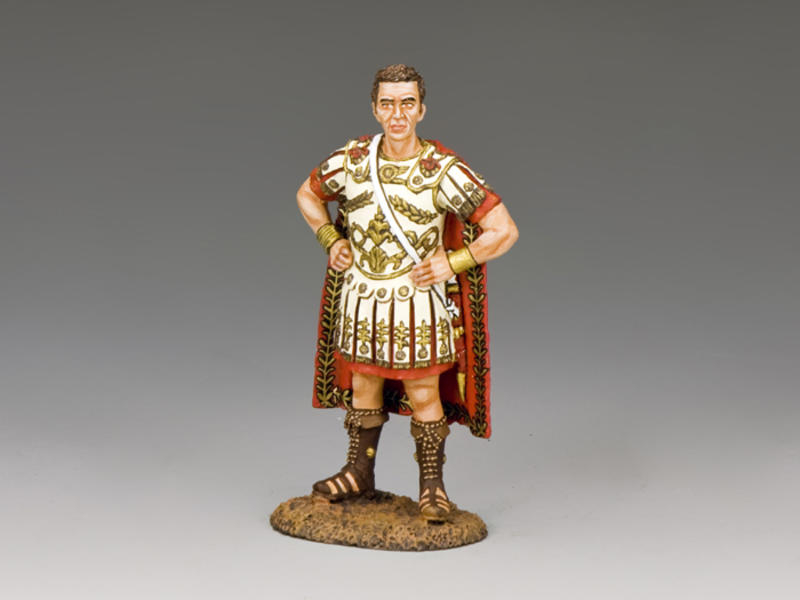
Photo: King & Country 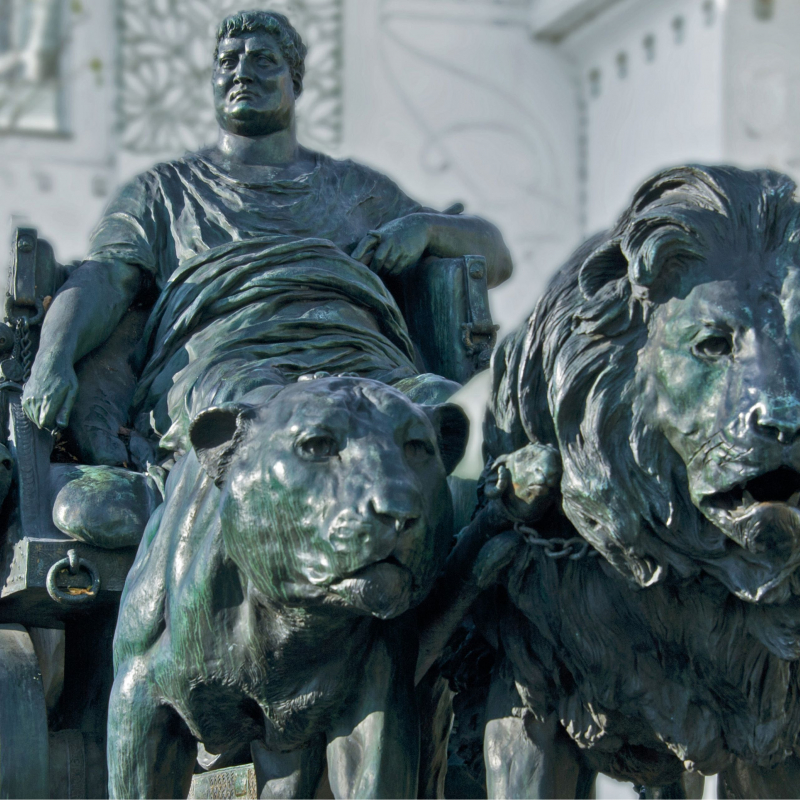
Photo: ThoughtCo









